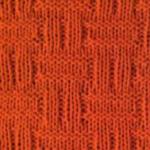How to explain to a child where to give change. Where to give change Where to give change
Today you are holding in your arms a very tiny child who is not even a year old. But it won't be long before he goes to kindergarten and then to school. But up to this point, your child grows in love and understanding, where no one will ever offend him.
What if your child is offended by another? What to do in this case? where to change? You can easily answer all these and many other questions by reading just a few recommendations in this article.
Child education
Naturally, every parent wants to protect their baby from all kinds of difficulties and dangers. And this is really the right decision, but only up to a certain age. Not worth too much especially when the time is right for him to go to kindergarten. Gradually prepare him for the fact that in life there is not only good, but also evil, that not all people will treat him well, even though he did nothing wrong.
Before the child goes to kindergarten, it is imperative to have a conversation with him about where they give change, and where it is better to just get away from the conflict. It is very difficult for small children to give a clear understanding of this all, but you will certainly be able to find the necessary words that the baby will remember for the rest of his life.

The opinion of psychologists: where should you give change?
If you take children, they very rarely have any conflicts with each other. Unless in very rare cases, when the children did not share the toy.
The most problematic age begins in boys at about 6-8 years old. It is at this age that a sense of duty is laid in children. He is now responsible for all his actions, so at this stage it is very important to understand a few rules:
- The child must understand that fighting is very bad, that he will be punished for it. And the baby will look for friends who adhere to this point of view.
- The kid will remember where to give change if it is clearly explained to him. If he was accidentally touched or stepped on his foot, this is not a reason to get into a fight.
- If he is already beginning to think over a plan of revenge, play along with him in a humorous manner so that he understands that it is very bad to use force.
Is the use of force appropriate?
Whenever possible, the child should avoid situations where he must use force. Therefore, it is better to immediately educate him as a self-confident person, and he will be able to stand up for himself without raising his hand on anyone.
Parents should always encourage the baby, point out his successes and force him to bring all the work to the end. This is how he will be confident in his abilities, and you will not have to resort to how to teach your child to fight back. He can easily resolve misunderstandings and conflicts with his peers himself.

In any case, the parents themselves must decide whether to teach the child, where to give change, and where not. Not all people accept violence, but your toddler needs to be prepared for different situations. Therefore, in order to avoid a large number of conflicts, parents need to adhere to certain rules:
- First of all, the child himself should not, in any case, be the initiator of problem situations. Teach him to treat others the way he would like to be treated.
- Be sure to teach your toddler how to meet other children.
- If a conflict situation has occurred, teach your child that you can discuss everything verbally, ignore it, or turn to adults.
- Teach your toddler firmness, self-confidence and the ability to stand up for himself. In this case, the abuser will not even think of ever again offending him.
- To avoid fights outside the home, there should be no room for aggression. Parents are obliged to treat each other with respect and in no case take out their anger on the child.
Over time, the child himself realizes where to give change. The main thing is to lay in him a good moral foundation so that in the future he will make the right choice.
Today you are holding in your arms a very tiny child who is not even a year old. But it won't be long before he goes to kindergarten and then to school. But up to this point, your child grows in love and understanding, where no one will ever offend him.
What if your child is offended by another? What to do in this case? How to explain to a child where to give change? You can easily answer all these and many other questions by reading just a few recommendations in this article.
Naturally, every parent wants to protect their baby from all kinds of difficulties and dangers. And this is really the right decision, but only up to a certain age. Do not pamper your child too much, especially when the time is right for him to go to kindergarten. Gradually prepare him for the fact that in life there is not only good, but also evil, that not all people will treat him well, even though he did nothing wrong.
Before the child goes to kindergarten, it is imperative to have a conversation with him about where they give change, and where it is better to just get away from the conflict. It is very difficult for small children to give a clear understanding of this all, but you will certainly be able to find the necessary words that the baby will remember for the rest of his life.

The opinion of psychologists: where should you give change?
If you take preschool children, they very rarely have any conflicts with each other. Unless in very rare cases, when the children did not share the toy.
The most problematic age begins in boys at about 6-8 years old. It is at this age that a sense of duty is laid in children. He is now responsible for all his actions, so at this stage it is very important to understand a few rules:
Is the use of force appropriate?
Whenever possible, the child should avoid situations where he must use force. Therefore, it is better to immediately educate him as a self-confident person, and he will be able to stand up for himself without raising his hand on anyone.
Parents should always encourage the baby, point out his successes and force him to bring all the work to the end. This is how he will be confident in his abilities, and you will not have to resort to how to teach your child to fight back. He can easily resolve misunderstandings and conflicts with his peers himself.

In any case, the parents themselves must decide whether to teach the child, where to give change, and where not. Not all people accept violence, but your toddler needs to be prepared for different situations. Therefore, in order to avoid a large number of conflicts, parents need to adhere to certain rules:
Over time, the child himself realizes where to give change. The main thing is to lay in him a good moral base so that in the future he will make the right choice.
- A young mother is faced with a lot of questions related to caring for a baby. Among them - is it necessary to use a pacifier or is it harmful to the baby? Pacifiers are definitely convenient to use ......
- Self-assessment is a personal assessment of one's qualities and capabilities. Such an assessment is not always adequate, someone overestimates themselves, someone, on the contrary, underestimates, and this greatly interferes in life. That's why......
- Explaining parental divorce to a child is not always easy. Or rather, it is very, very difficult. After all, I want to do it as carefully as possible, without injuring the child's psyche. Most often children ...
- Multi-colored overflows with constantly changing and moving shades in a dark sky, glare and just a very beautiful view - all this refers to the northern lights. How to explain nature to a child ...
- The heated controversy surrounding the pacifier has been going on for decades. There are ardent supporters and opponents of this wonderful accessory. In the meantime, fierce battles are being waged, in every family, parents make a decision: ......
- Cottage cheese is an unusually healthy product. It contains a large amount of nutrients that have a beneficial effect on the health of the child. But, like any other food, introduce it into the baby's diet ...
- Activated carbon is not only the cheapest and most affordable, but also the safest adsorbent known to you and me. Some mothers are wondering how it is possible to apply ......
- Most parents believe that if they consistently praise their children, they will grow up to be selfish and self-confident. However, it is possible and necessary to praise the child, the main thing is not to overdo it. Do not use generic, faceless ...
- Compliance with the daily routine is very important for the development of a healthy child from infancy to adolescence. In the period from birth to one year, the child grows especially quickly, and the regime ......
- Students are ready to do a lot just to pass the exams with excellent marks. They regularly call for "freebies", and also carry out various magical rituals. It is important to take this seriously, in ......
- The relationship between a man and a woman is a very complex system. They may have the same interests, a favorite football team, or a writer. However, there will certainly be a topic regarding which ...
Give change (change) GIVE CHANGE (CHANGE) to whom. GIVE CHANGE (CHANGE) to whom... Simple. To respond to a blow, an insult in kind. - The comrades began to hound and beat Vincent ... Strong and strong Vincent gave back, but he got hit(N. Virta. Evening Bells).
Phraseological dictionary of the Russian literary language. - M .: Astrel, AST... A.I. Fedorov. 2008.
See what "Give change (change)" is in other dictionaries:
To whom. TO GIVE CHANGE (CHANGE) to someone. Simple. To respond to a blow, an insult in kind. The comrades began to hound and beat Vincent ... Strong and strong Vincent gave back, but he also hit (N. Virta. Evening bells) ... Phraseological dictionary of the Russian literary language
to push back- ▲ to neutralize the attack to repulse (# attack). fight back. stand up for whom (# for yourself). repulse reflection of an attack; strong opposition (meet #. give #. get #). give [give. get] change [change]. teach a lesson. wean. to… … Ideographic Dictionary of the Russian Language
Lomonosov, Mikhail Vasilievich- - scientist and writer, full member of the Russian Academy of Sciences, professor of chemistry at St. Petersburg University; was born in the village. Denisovka, Arkhangelsk province, November 8, 1711, died in St. Petersburg on April 4, 1765. At present ... ... Big biographical encyclopedia
Tsushima battle- Check information. It is necessary to verify the accuracy of the facts and the accuracy of the information presented in this article. There should be explanations on the talk page ... Wikipedia
Battle of Tsushima 1905- Battle of Tsushima Russo-Japanese war Heihachiro Togo on the bridge of the flagship battleship Mikasa ... Wikipedia
Bridge (card game)- The word bridge has other meanings, see Bridge (disambiguation). Bridge Declarer's cards and table. Number of players 4 Age range 12+ Installation time About 60 seconds Game duration 30 seconds 15 minutes Complexity of the rules ... Wikipedia
Bridge- This term has other meanings, see Bridge (meanings). Bridge Declarer's cards and table ... Wikipedia
(#template MAIN)
Mainly mothers, boys of which are 6-8 years old, are concerned about such behavior.
In order to answer such questions, one must first turn to the psychology of a child of this age. Then talk about the reasons for this "defenselessness." After that, try to find out what is the reason for the behavior of a particular child. And only then choose the most suitable option, how to cope with this problem (and will this be a problem in your case?).
So, by the age of 6-7 the child becomes highly dependent on the assessment of the adult. The child develops a feeling like conscience, which means that all reactions to the rules and prohibitions become significant and the child understands what the violation of prohibitions entails.
In this case, it is a manifestation of his resentment. While he is offended, he will be constantly offended. Moreover, they will always offend "on the rise." And this is where the mistake of many parents is seen, who teach the child " give change”, That is, to respond to the offender with force.
Before the child goes to kindergarten, it is imperative to have a conversation with him about where they give change, and where it is better to just get away from the conflict. It is very difficult for small children to give a clear understanding of this all, but you will certainly be able to find the necessary words that the baby will remember for the rest of his life.
Too active mother, strong-willed, persistent, solving all his problems for the child and doing the most difficult work for him.
An anxious mother, who limited him from any shocks, from unnecessary contacts, warning every movement of the child.
When, during the period of development of independence (2-3 years), the child was limited in this very independence. As a result, a failure avoidance motive developed instead of a goal achievement motive. That is, instead of achieving the goal, the child simply runs away from it.
In the family, all problems are solved without conflict, and the child has never observed how close people show protective reactions.
Level 31 - which person with the name "Vladimir" is the most famous?
Putin
Vysotsky
Lenin
Level 32 - what prize is awarded to the winner of the competition?
medal
cup
money
(#if $ P.login_register_tab == 1)
(# / if)
(#if $ P.login_register_tab == 2)
Allow your child to communicate more with other children. If the child cannot give back, then you need to tell him a more acceptable way of protection. For example, if he is disgusted by the very fact of letting go of his hands, let him make sure that he cannot be hit, for example, warn the offender in a stern voice, show with all his appearance that he will not allow himself to be touched.
Self confidence- that's what's important. To a self-confident person, no one will just come up to hit or offend.
If a child fantasizes about how he will give back to the offender, play along with him, but so that it is not aggressive. Play different scenes of how you can respond to the offender, and not only with the help of force. The more options you find, the more chances that the child will nevertheless find one of the options suitable for himself and use it in resolving the conflict. Plus, your support will give him confidence.
I would like to know your opinion on this issue.
- First of all, the child himself should not, in any case, be the initiator of problem situations. Teach him to treat others the way he would like to be treated.
- Be sure to teach your toddler how to meet other children.
- If a conflict situation has occurred, teach your child that you can discuss everything verbally, ignore it, or turn to adults.
- Teach your toddler firmness, self-confidence and the ability to stand up for himself. In this case, the abuser will not even think of ever again offending him.
- To avoid fights outside the home, there should be no room for aggression. Parents are obliged to treat each other with respect and in no case take out their anger on the child.
Over time, the child himself realizes where to give change. The main thing is to lay in him a good moral base so that in the future he will make the right choice.
When asked by a child psychologist in kindergarten, she explained to the children that they shouldn't give back if they hit you. What do you think? given by the author Natalia The best answer is On the one hand it is correct, but on the other ... It reminds me of the phrase from another story "Hit one cheek, turn the other." Today he pounded his fist, but tomorrow? Will he knock down and kick with his feet? It is necessary to give back, of course, without fanaticism, otherwise they will completely lose heart and then they will kick constantly. Where tolerance is professed, lawlessness rules.
Answer from Flush[guru]
I think the same way
Answer from Ѓlyana Romanova[guru]
depends on a situation
Answer from Kosobokiy[guru]
fool psychologist, she has not been beaten yet
Answer from Undergrowth[guru]
And I think that psychologists as such are not needed in the kindergarten at all. There are too many pseudo-specialists among them.
Answer from Lexsa[guru]
speaks correctly. you need to go tell the teacher and she will sort out the conflict
Answer from NoName![guru]
It all depends on the situation, it seems to me. You need to evaluate where you need to fight back, and where you need to moderate your ardor ...
Answer from Girlfriend[guru]
I think we need to fight back.
Answer from ARTANIS ARTANIS[newbie]
Well, depending on the situation and depending on who gave it?
Answer from Matryoshka[guru]
Is that what she said? and about the fact that it is worth defending yourself did not mention?
Answer from Slava[guru]
Let it be better to explain about exceeding the limits of necessary self-defense!
Answer from *muse*[guru]
I also said to my own that smart people resolve disputes with words, not fists .. And that he already knows that he can beat anyone, only is it necessary to go down to their level? Although, of course, sometimes it is necessary to move too)
Answer from Zaya_san[guru]
I wonder how she explained that? ... the religious community? - "turn the other cheek?" .... I have only questions ...
Answer from Olee um[guru]
Aggression breeds aggression. The psychologist is right. All conflicts must first be resolved with words. If we are talking about life and death, and not about children's fights in the garden - then another story.
Answer from 154154154 trio[active]
the child needs to be taught: if you were hit, don't fight yourself, go and tell the teacher. this is not sneaking, but a normal way of punishing evil.
Answer from OlKa[guru]
That's really complete garbage ... .Such children are different ... if you allow yourself - it will be PPC ...
Answer from Ilyanushka[newbie]
Surrender - no, but to explain to the child that you need to stand up for yourself - yes.
Answer from Nikita[guru]
RIGHT. I think so too. Imagine if your child knocks someone, or even let him give change, and he is stronger, and surrenders the change to him, so yours will get it. Then you will come to the kindergarten and be indignant - why yours was beaten. And he may be the first, he just got a stronger change. And do not say that yours cannot knock someone, each of them knocks the other, maybe even by accident. Mine, I think, is doing the right thing, if she is knocked, then she screams like a siren, and not surrenders, then that child is scolded, but she is good. And if she would give the boy change and he would then hit her, what would it be, horror !!!
Answer from Џ
[active]
If the child is right, then he should not, but must fight back, and not turn the other cheek.





